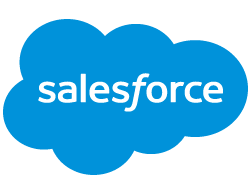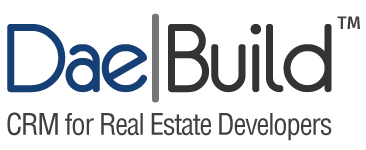Best Real Estate CRM Software For Your Business In 2023
We're here to help you to find your business's best Real Estate CRM software. Do you want to get a free consultation to find the perfect Real Estate CRM software? Connect with us now and compare all verified user reviews, features, pricing, and more.
List of 25 Best Real Estate CRM Software

Software by SoftwareSuggest
With our innovative CRM software, businesses of all sizes can now seamlessly manage their customer relationships with ease. Join the future of customer management today and see the difference for yourself. Read more
Starting Price: $0 Free Version / Single User

Software by Simply CRM
Our team is dedicated to developing simple & efficient software that will ease the daily routine for small & med sized companies. Our aim is to provide simplest and most efficient CRM. Read more
Starting Price: Available on Request

Software by HubSpot
HubSpot Client Management Software helps to business to keep the complete eye on each and every leads and touch point with those leads to track the lead status. Hubspot lead scoring system helps sales team reduce the time and efforts in filtering out the bulk ... Read more
Starting Price: Available on Request

Software by Sell.Do
Sell.Do is a CRM exclusively designed for real estate businesses. The platform provides end-to-end sales and marketing automation solutions for all kinds of property builders and has been designed with an in-depth understanding of the real estate bus... Read more
Starting Price: $0 User/Month

Software by Bitrix Inc.
Bitrix24 is one of the best CRM software which provides a platform to organize and track interaction with potential or existing clients, partners, agents and other contacts. It is a collaboration platform that's perfect for CRM. It has over 30 tools that will h... Read more
Starting Price: $0 User/Month

Software by SalesForce Inc.
This is one of the best sales force automation software for the small business to the large enterprise, salesforce has cloud CRM solutions to help sales reps everywhere and with the user-friendly automation options. Read more
Starting Price: $0 User/Month

Software by Freshworks
Freshworks CRM is an instinctive software device that empowers your salespeople to begin selling. It draws in guests, converts them into customers, runs missions, and transforms your website into a crowd-puller. It certainly is one of the best CRM software to use f... Read more
Starting Price: Available on Request

Software by ITAakash Strategic Software (p) Ltd.
StrategicERP provides an end-to-end business solution specifically tailored to cater to the needs of Real Estate and Infrastructure Industries with the modularized and innovative technology created by IITians. Read more
Starting Price: Available on Request

Software by Pipedrive
Pipedrive is leading web-based Lead Management system loved by large number of sales teams. It is also a sales pipeline management tool to centralize the sales process arounf deals and helps team members focus on the right thing. Read more
Starting Price: Available on Request

Software by Realty Redefined
RSquare is exclusive real estate software web application & mobile app for real estate agents. RSquare takes real estate brokers from ‘broking’ to ‘consulting’ as brokers now maintain every property and enquiry in a single applicat... Read more
Starting Price: Available on Request
 (1)_mid.png?auto=compress,format)
Software by Cratio Software Private Ltd.
Cratio Offers Risk-Free CRM Software Deal With Customization, Dedicated Support & 100% Success Guarantee. We Provide Online Cloud & Mobile CRM Software for B2B, Real Estate, Education, Financial Services, Travel, Tours, Hotels & Health Care Industries. ... Read more
Starting Price: Available on Request

Software by LeadSquared Inc.
LeadSquared is a complete customer acquisition platform for businesses. It combines the features offered by both CRMs as well as Marketing Automation software, and thus brings your Sales and Marketing teams on the same page. Read more
Starting Price: Available on Request

Software by ABC Info Soft
Bhoomi allows for scalability, reliability, efficient data processing, quick decision making, best utilization of company's manpower and reduced maintenance and overheads. Bhoomi Construction Management takes care of entire Construction and Inventory Manag... Read more
Starting Price: Available on Request

Software by Brokermint
BrokerMint is a Real Estate back office software The complete easy-to-use real estate back office platform. Integrate Brokermint with MLS, CRM, and QuickBooks, seamlessly. Read more
Starting Price: Available on Request

Software by Edynamics
BMS is invented and designed specifically for Real Estate businesses (Builders, Developers, and Channel Partners) to take care of their day to day operations and automate them towards achieving better results with the available resources. Read more
Starting Price: Available on Request

Software by Daemon Information Systems
DaeBuild CRM empowers Builders with an end to end Sales Automation and Customer Engagement Software thus elevating complete sales and customer management process. It is the most powerful Pre Sales and Post Sales system designed for Indian Real Estate Builders. Read more
Starting Price: Available on Request

Software by Focus Softnet Global
Focus 9 serves to small, medium and enterprise level customers with equal ease and flexibility across multiple industry verticals. One-stop ERP on the cloud with in-memory computing and industry-ready templates. Read more
Starting Price: Available on Request

Software by Vtiger
Vtiger is a one of the best web based CRM software for small & medium business of India and startups with built-in features of email marketing, activity and project management & much more. Online CRM software can also act as a mobile CRM & the... Read more
Starting Price: $18.06 Per Month

Software by Salesforce
Salesforce Essentials makes it easy for small businesses and startups build stronger client relationships with an all-in-one sales and support solution that is easy to use, setup, and maintain - Best client management software with standard cost. Read more
Starting Price: Available on Request

Software by Intellika Technologies
Intellika’s Real estate CRM provides easy access to brokers, agents and the customers data in an understandable format thus by ensuring that all participants in the ecosystem are satisfied. Our strategy, solutions and services, meets our client expectation an... Read more
Starting Price: Available on Request

Software by Teknovative Solution
Teknovate CRM is the best CRM with In-built Marketing automation facility which can be used for pre sales as well as post sales operations management & automation. it is eqiped with industry best features which will leads to sale faster and higher with ease. Read more
Starting Price: Available on Request

Software by nobroker
Experience world-class technology that is built to make your community living more convenient and more secure. It’s easy to use, available in all local languages and made for all! Read more
Starting Price: Available on Request
_mid.jpg?auto=compress,format)
Software by Estelle Technologies
Our Expertise in the wide range of business applications in Multi-Tier distribution Architecture and Mobile device provided innovatively and quality IT products and solution to help implementation of the agile, integration system and process that wil... Read more
Starting Price: Available on Request

Software by bpm'online
Creatio (formerly bpm’online) is a leading low-code, process automation and Client management software and CRM. It has been highly recognized as a market leader by key industry analysts. Creatio’s intelligent platform accelerates sales, marketing, servi... Read more
Starting Price: Available on Request

Software by Uventure Business Solutions
toast CRM is complete SaaS-based CRM software for sales force automation. It easy to manage lead, contact, document, sales & service, sales tracking, analytics management and more important features. Read more
Starting Price: Available on Request
What is Real Estate CRM Software?
Real estate CRM software is typical, but it incorporates advanced capabilities and features specially designed to meet the demands of real estate businesses. Real estate agents and other stakeholders often use this solution to manage property leads, automate daily booking activities, and generate detailed reports.
Moreover, it also ensures that you don't miss out on any opportunities to engage with prospects. The software also empowers you to schedule site visits, design and monitor marketing campaigns, track financial transactions, and perform several other tasks. Besides, you can also view your online lead sources from your website, landing pages, and third-party website portals and automatically allocate them to the sales team based on projects, location, budget, and other criteria.
Real Estate CRM Software is a widely used and appreciated technology in any business. Real estate has a unique attraction to the effective CRMs that handle possible challenges in managing customers, vendors, consultants, etc. Any real estate business can adopt a CRM strategy or CRM software based on their needs. A CRM strategy focusing on CRM covers everything for businesses, including building, managing, and sustaining business relationships with customers and leads. For example, excellent real estate software caters to real-estate firms that store structured data like purchase history, communication, personal information, etc. Do you know that more than 91% of businesses with ten or more ten persons are using any CRM?
A real estate agent has a lot of responsibilities, including taking care of all financial transactions, generating leads, and catering to every client’s requirements. CRM for real estate acts as a centralized database for your client and prospect information. It assists in cultivating long-term relationships with your clients and making data-driven decisions.
Let us know all about CRM in detail, starting with its main advantages for any firm. Before investing in this powerful technology, the top cases that any firm can consider are not to miss..
What is the need for CRM technology for real estate businesses?
Multiple software is available for businesses that facilitate the easy working of real estate businesses. However, while looking for a good CRM, any real estate business needs to reap its key benefits. These are:
1. Creating customer profiles
These help real estate teams manage and analyze purchase records, psychological profiles, demographic data, etc. Hence, all usable information about customers can be quickly derived at the time of need from an all-inclusive CRM platform. The extensive information scope of customer profiling ensures no miss in data while pitching the customers. The sales team can crack the deals confidently with the correct information.
2. Improving increased workflows
Manual sign-ups and documentation form a large part of the real estate functionalities. CRM platforms do excellent work standardizing the approved workflows and automating the assigned tasks. As a result, all the critical functions like document gathering, contract approvals, sign-offs, etc., can be streamlined using CRM into the approval workflows. Hence, real estate firms can use the process-centric approach of CRM with its advanced features.
3. Improved productivity
A good CRM solution for real estate organizations understands the critical hindrances in the productivity of the business processes. Hence, it works in the right direction to increase the existing productivity by helping everyone differently. Data management, process management, flexible operations, etc., allows sales, accounts, marketing teams, etc., to concentrate on customers with increased focus.
4. Improved lead generation
CRM software for real estate was marketed to improve lead generation. It allows the different salespersons to keep track of the leads and deals. The sales team can make informed decisions with the help of detailed lead reports. Data accumulation can be made easy by adding prominent social media channels to improve lead generation. It helps create a positive sales environment when the sales team can anticipate customer behaviors.
5. Automating processes
The routine operations in real-estate companies require quick data entry and maintenance activities. Therefore, all the repetitive functions like data, communications, etc., should incorporate the maximum levels of automation to decrease the time and effort while increasing efficiency. Using good real estate customer relationship software, you can quickly reduce the teams' manual workload, increasing productivity to maximum levels.
6. Integrated CRM solutions
Any small or big real estate firm can't miss the integration capabilities of any CRM system. It becomes easy for the companies to streamline the existing technology or tools with the newly introduced CRM process. The accounts, marketing, billing, social media, etc., can be quickly integrated with the CRM for managing the real estate workflow.
What Are the Critical challenges in investing in Real Estate CRM software?
With the benefits of CRM for any real estate firm, it is clear that any growing business must implement it for total efficiency. However, the truth is that many real estate firms are not using any CRM tool. So, why is this general negligence? Let us go through the critical challenges faced by different businesses while looking for CRM technology:
1. Poor knowledge
Ignorance can be the reason for the reluctance to change. Many organizational stakeholders have insufficient information about CRM and the inability to manage change. For example, do you know that more than 32.1% of real estate firms are unsure about finding an ideal CRM solution for their business? The other issues include costs, reluctance to use CRM, no information to the starting point of CRM, fear of integration with other systems, time-consuming, busy working, intimidating, missed crucial features, increased dependability on MS Office, etc.
2. Complex CRM interface
Most organizations do not implement CRM technology due to the complexities associated with tools. Do you know that 56% of the companies using CRM admit that they face challenges in its customization? The other difficulties while using CRM include poor integration, weak end-user adoption, decreased user productivity, data import features, lack of features, slow learning to use the system, latency, instability, support costs, security issues, etc.
3. Increasing team size
It is considered that a CRM system is a must for big real estate firms. This is due to the increased cost based on the features and users that only big companies can manage. A recent study reveals that 19% of CRM have single users, 42% have 2-5 users, 15% have 6-10 users, 14% have 11-20 users, etc. The increasing number of users, i.e., 21-50 users, is found in 9% of global CRM users, with only 1% CRMs having 51-100 and more than 100 users, respectively.
Top 6 Cases To Think About Real Estate CRM Software
Multiple challenges are faced by the real estate businesses while entering the world of CRM systems. It is essential for business owners to understand the top use cases of this CRM technology, specifically for the real estate business, that can support the business's decision to go for it or ignore it. So let us have a deep dive into the thought process of the real estate companies and consider the top 6 use cases while bringing the best custom solution home.
1. To enhance system flexibility and is a mid-size or large real estate firm
The size of the real estate firms is one of the primary cases to consider before investing in any technology. Any software like a CRM platform should support the flexibility of the real estate firm. For example, the small real estate companies go for the CRM software that offers generalized options as they aim to grow shortly. At the same time, big businesses need specific solutions that cater to their business needs. Unfortunately, the pre-built CRMs for real estate fail to offer flexibility that calls for frequent switches, which further adds to the operational costs of the firms.
Another solution for the growing businesses is to adopt the expensive CRM solutions that promise them high levels of flexibility. Cloud technology may ensure flexible operations, but it is beyond their budgets. This is because the costs of these real CRM solutions for real estate organizations depend on the number of users or log-ins used at different locations. In addition, a detailed understanding of real estate firms claims that the system flexibility starts taking a toll on the real estate effectiveness when the employee size exceeds 50.
While affordability is not the only concern, as the set of features offered in the pre-built CRM solutions may not match the needs of any real estate firm, it estimates that real estate companies keep on paying for the new, unused features. In addition, the rush of these features on the platform adds to the woes of the employees who pass through these functionalities daily without even using them. The product-oriented solutions of these CRM tools keep customer-oriented needs at bay.
Custom-made CRM solutions only help businesses pay for the used features. Also, flexibility is maintained at top levels as your employees have to use only the essential elements. Therefore, it becomes easy for the real estate teams to get quickly familiar with this software without additional training. Further, if the need arises to make necessary changes, this CRM is difficult to manage compared to the custom-built CRM solutions.
2. To eliminate multiple tools and start using a single CRM solution
The digitization process is a long journey, and different tools bring the best out of this online presence for any real estate firm. During data digitization, real estate firms come across multiple CRMs that are industry-specific or general and have innovative functions. Some include Zillow, a real estate database and marketplace, Animoto, which creates property videos, and DocuSign to sign and exchange documents. In addition, the recently incorporated technology includes VR/AR tour tools that offer a 360-degree view to the customer.
With the increasing business size, these tools are used at a larger scale. The corresponding increase in the team size results in multiple digital devices that start creating issues at this point. Teams that focus on bringing efficiency and quickness in daily processes remain confused in toggling between different tools. Hence, customized CRM solutions are a must for these businesses.
The two main issues of quick data retrieval from a system and a unified platform are best met by the on-demand design of an excellent real estate CRM for any real estate business. Hence, it strikes the right balance between digitization without hampering business efficiency.
3. To ensure data security
Security is a crucial concern for many real estate firms. While businesses think that keeping the documents safe at office places can be a good solution, it also brings security challenges. The good news is that most of the leading real estate software solutions use the power of cloud technology. However, with the accessibility of data from any corner of the world, cloud technology can be a bane for sensitive data and customer information if not implemented properly.
Generic cloud-based real-estate solutions are an intelligent business asset, but these are not free from security challenges. The latest data breach in Salesforce software hints that no measure is 100% preventive for real estate data and monetary transaction information.
The most dependable solution for any real estate company is custom CRM software development. These solutions stand high on the real estate CRM needs as they prevent access to sensitive data due to independent customization. Furthermore, any possible cyber security attacks on the CRM systems evade the chances of data extraction as hackers are never able to reach the data. The secret behind this wall of defense is dedicated tokenization and encryption measures that tighten data security and prevent unauthorized access.
4. To facilitate workflow automation
Pre-built CRM solutions are designed for the generic workflows in real estate and hence have no excellent benefits for the unique functionality. Moreover, they do not have critical features focused on specific industries, proving a functional setback.
Real estate's crucial functionality needs include automation of orders management, distribution, reporting, invoicing, etc. Businesses with specifically employed value consultants need a CRM that satisfies customers and vendors with similar functionality. The client order distribution among different vendors based on the latest efficiencies, existing workloads, deadlines, etc., can be another vital need of any real estate firm.
Automation of any real estate process increases productivity as orders are well managed, data remains well-structured for quick retrieval with no chances of data loss, etc. The challenges of manual processes like missed appointments are met by innovative CRM solutions that offer gentle reminders and notifications. The same goes well for the billing process as the platform provides quick invoice generation and shares the same with the vendors or customers according to their needs.
5. To enable multiple integrations
Like employees can't work alone in the office, any CRM requires dedicated integrations for quick interactions. These integrations allow the CRM to exchange data using internet apps or other third-party tools. These integrations increase the productivity of different real estate departments. Real estate firms' key integrations for their CRM include quick access to email services, project management apps, time-tracking services, accounting apps, Google maps, etc.
Many pre-built CRM solutions may not justify the integration needs of a specific real estate firm. Furthermore, the free integrations in the pre-built CRM solutions for the real estate sector tend to increase the prices without serving the customized needs of the firm. Hence, it is ideal to opt for dedicated CRM development services to create solutions and implement better integrations. The popular real estate CRM Salesforce offers this solution at an additional 150 USD per employee per month.
Hence, custom real estate CRM software can handle the dedicated integrations, whether it is affordable to match the integration needs. Furthermore, this system uses API-first integrations for quick data access based on the allowed permissions. Hence, no more fuss in bringing more apps or services to your real estate CRM.
6. To provide in-depth analytics
Data analytics is essential for every modern business, including real estate firms. The pre-made CRM solutions may get marketed with in-depth analytics functionality; however, their data analytics tools can be highly generic. However, the need of the hour is the specific tools that are created, keeping in mind the customized workflows for any real estate firm. Hence, businesses can make important decisions regarding marketing and sales based on in-depth analytics.
Real estate CRM's use cases of in-depth analytics include the clear distinction between prospective customers and general leads using predictive client analytics. In addition, the statistics collected in the system can help real estate firms calculate the actual value of the property, the period of the property in markets, demand for the lush properties, etc.
Hence, in-depth analytics is the need of any good real estate CRM tool. Most custom CRM solutions have data analytics tools that provide real-time business intelligence. To simplify the dedicated data analytics process, they offer relevant data insights, dashboard configurations, meaningful reports, easy-to-interpret datasheets, visual representation, etc. The customers like these analyses, especially when they're bombarded with enormous amounts of information and find it challenging to decide.
Real estate companies are facing challenges with growing competition from listing portals. And not just that, the high cost of capturing leads also adds to the pain. If you are looking for ways to grow your real estate business, let me introduce you to real estate CRM software.
A real estate agent has a lot of responsibilities, including taking care of all financial transactions, generating leads, and catering to every client’s requirements. CRM for real estate acts as a centralized database for your client as well as prospect information. It assists in cultivating long-term relationships with your clients and making data-driven decisions.
For top real estate companies, CRM is a crucial tool to easily manage the sales pipeline and close more deals faster. But at the same time, you need to choose the right CRM for your real estate business. This article lists down the top 10 CRM solutions that you can evaluate.
Top 10 Real Estate CRM Software

1. Zoho Real Estate CRM
Zoho Real Estate CRM caters to all business sizes looking to streamline and automate various activities like property management, lead management, and much more. It helps with running targeted, personalized marketing campaigns to generate more leads.Furthermore, its end-to-end solution enables you to easily keep a tab on all your ongoing projects. Its built-in process reports help you identify and rectify bottlenecks in your processes.It automatically generates invoices, creates and stores quotes to quicken your whole process and close deals faster.
Features
- Employee self-service portal
- Inventory management
- Marketing analytics
- Case management
- Complete customization
Pros
- Seamless integration
- Supports 17+ languages
Cons
- Lack of customer support
Pricing
- Standard: ?800 per user per month
- Professional: ?1,400 per user per month
- Enterprise: ?2,400 per user per month
- Ultimate: ?2,600 per user per month
2. Bitrix24
Bitrix24 offers a free CRM for real estate that helps automatically generate leads from your email inquiries, website, and phone calls — answered or missed. Its email marketing tool lets you connect with your prospects by sending bulk messages and keeping them updated with your company's news. The best part is that it enables you directly answer and make calls from the CRM, saving a lot of time that would otherwise be wasted in switching applications. Most importantly, these calls from existing clients get automatically routed to an assigned agent when they dial your business number.
Features
- Unlimited records & custom fields
- Quotes and invoices
- Calendars, tasks, and project management
- API, CMS, marketplace, open-source code available
- Lead management
Pros
- Powerful reporting tool
- Mobile access
Cons
- The structure is a bit complicated.
Pricing
- Free (for up to 12 users)
- Special Plan: Starts at $19 per month
- Business Plan: Starts at $79 per month
3. Cratio
Cratio is a sales CRM software for the real estate industry that aims to help businesses accelerate their growth. It creates an omnichannel presence for your business and captures leads from property platforms like 99acres, Magicbricks, Website, Facebook, Google, etc. The system takes care of the entire booking process — from quoting to sharing property details and invoicing. Besides, it keeps an organized database of all your properties — including information like flats, locality, plots, size, budget, availability count, and project details.
Features
- Telecaller performance management
- Upselling and cross-selling
- Leads automation
- Sales reports
- Customization
Pros
- Seamless integration
- Mobile commercial real estate CRM
Cons
- Overall GUI could be improved.
Pricing
- Price on request
4. Hubspot CRM
Hubspot CRM for real estate businesses provides an end-to-end solution that aims to make your job easy. It provides complete visibility into your sales pipeline in real-time, ensuring that no leads fall through the crack. Besides, its detailed reporting feature gives you a sneak peek into your company’s performance. It also provided actionable insights to help executives make informed and smart decisions. It is one of the best CRM for real estate businesses companies like Purple, Wistia, and more use Hubspot CRM.
Features
- Prospect tracking
- Meeting schedule
- Live chat
- Email tracking and notifications
- Contact management
Pros
- Social media management
- Rich interface
Cons
- Workflows can be a bit confusing
Pricing
- Free
- Starter: $45 per month
- Professional: $450 per month
- Enterprise: $1,200 per month
5. Insightly
Insightly is a commercial real estate CRM that provides features like workflow automation and campaign management. It enables users to run targeted, personalized email marketing to help realtors connect with more real estate leads. Besides, its easy-to-use content design and testing tools put your ideas into reality. What’s more, you can create a standardized workflow to manage your contacts and leads using custom fields and dynamic page layouts. To better deal with your customers, you can automate the process of inventory management, assigning tasks, and clarifying order details.
Features
- Lead tracking
- Lead routing
- Bulk email tools
- Task management
- Marketing automation
Pros
- Seamless integration
- Minimalistic UI/UX design
Cons
- Customer support needs improvement.
Pricing
- Plus: $29/user/month
- Professional: $49/user/month
- Enterprise: $99/user/month
6. LeadSquared
LeadSquared provides real estate businesses with end-to-end sales execution to help accelerate growth. It ensures that no leads get lost and helps engage property buyers and leads to convert them into paying customers.You can track leads from multiple channels, including websites, social media, chats, and phone calls. Besides, its drag-and-drop landing page builder allows you to create hundreds of responsive landing pages and run targeted campaigns to attract more buyers. Not just that, it also automates task assignments and first responses to inquiries, saving a lot of time for your sales agents.
Features
- Custom reporting
- Task management
- Lead Management
- Campaign management
- Contact management
Pros
- Rich dashboard
- Reliable support
Cons
- Integration can be a bit complicated.
Pricing
- Quote on request
7. Freshworks CRM
Freshworks CRM, formerly known as Freshsales, is a leading CRM that enables you to create your own lifecycle stages based on your business process. You can create custom activities and define their outcomes — from tracking interactions to checking-in to meetings, logging calls, and much more. Over 40,000 customers, including Dyson, Flyrobe, and more trust Freshworks with their business. The best part is that you can store records on your mobile app for offline access.
Features
- Reporting and analytics
- Sales forecasting
- Role-based access
- Pipeline management
- Contact management
Pros
- Intuitive drag-and-drop interface
- Seamless integration
Cons
- Implementation is slow
Pricing
- Growth: $29/user/month
- Pro: $69/user/month
- Enterprise: $125/user/month
8. Pipedrive
Pipedrive CRM makes sales visuals by allowing you to make customized pipelines. It also enables seamless integration with Google Calendar, task automation, and reminder alerts. Its interface gives a smooth experience to its users. Using Pipedrive, you can easily update contact data, create new deals, and create a workflow with its easy drag-and-drop feature. What’s more, it integrates with popular third-party applications, including Trello, Asana, and Slack. Its actionable insights help businesses make smart decisions, closing more leads.
Features
- Email integration
- Goal setting and reporting
- Timeline view
- Contact management
- Powerful API
Pros
- Supports multiple languages
- Full customization
Cons
- Can include more analytics
Pricing
- Essential: $12.50/user/month
- Advanced: $24.90/user/month
- Professional: $49.90/user/month
- Enterprise: $99/user/month
9. Propertybase
As the name suggests, Propertybase provides a comprehensive set of solutions particularly designed for property management. It’s a real estate platform that comes integrated with CRM, marketing, and Internet Data Display website. You can easily automate all your daily tasks and keep a tab on your operational data in one place. Your sales reps can instead focus more on selling rather than worrying about data entry. What’s more, you can manage listings on real estate websites and create campaigns on social media platforms. This ensures that the property buyers see your listings at the right time and at the right place.
Features
- Calendar management
- Campaign management
- Client-property matching
- Commission management
- Lead management
Pros
- Ease of exporting reports
- Intuitive interface
Cons
- Graphs aren’t much clear.
Pricing
- Quote on request
10. Rethink CRM
Rethink CRM is one of the best commercial real estate software that helps manage every aspect of your client pipeline. It allows you to track progress, automate the process of task management, log calls, and much more. It helps maintain an efficient channel of communication with all your clients.
What’s unique is that it analyzes critical trends using deal pipeline, revenue stream, deal closed, and more. There’s no doubt that it’s a powerful tool for real estate brokers and commercial real estate professionals.
Companies like M&M, Blau & Berg, and more use Rethink CRM.
Features
- Deal management
- Email marketing
- Financial management
- Document storage
- Critical data alerts
Pros
- Internal chat integration
- Easy to use
Cons
- Customization is not easy.
Pricing
- Quote on request
Wrapping Up:
Real estate is a budding market; hence, it needs efficient and affordable technology support. A good real estate CRM is all any company needs, irrespective of its size, revenue, or employees. The changing trends hint at this technology for any business based on their specific needs. A quick look at the top six use cases mentioned above careful observation ensures that real estate companies can quickly find a match for their particular departments and functions.
The custom CRM software has high inflexible functions, increasing team size, security, in-depth analytics, multiple integrations, unique features, and a unified platform for global users. So any real estate firm aiming high in functionality, affordability, and efficiency can go for the custom CRM development.

 Buyer's Guide
Buyer's Guide